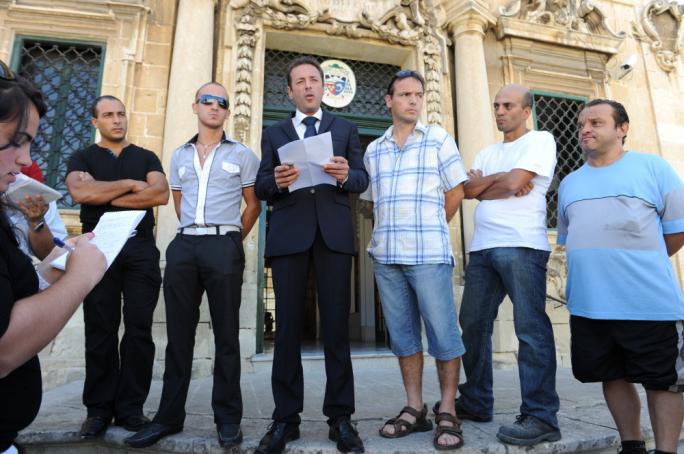|
St Joseph Home sex abuse victims lose appeal for damages from Church
By Matthew Agius
Court of Appeal confirms damages claim by victims of the St Joseph Home clerical sex abuse is time-barred More disappointment for the victims of the St Joseph Home clerical sex abuse, as the Court of Appeal confirmed that their case was time-barred.
Chief Justice Joseph Azzopardi, Mr Justice Tonio Mallia and Madam Justice Miriam Hayman, in a decision handed down on Friday, upheld a judgment of the First Hall Civil Court, ruling the claim to be time-barred. The case dates back to August 2011, when two priests of the MSSP, Godwin Scerri, 78, and Carmelo Pulis, 69, were defrocked and jailed for five and six years respectively on appeal in 2012, after they had been convicted of sexually abusing 11 boys in their care at St Joseph’s Home in Santa Venera in the 1980s. They had filed a civil case for damages, which was assigned at first to Mr Justice Joseph R. Micallef, who recused himself due to his ties to the Church and later assigned to Madam Justice Anna Felice, who also abstained. The case was finally assigned to Mr Justice Mark Chetcuti, who heard evidence on the plea of prescription. But their efforts to obtain compensation all came to naught in April 2018 when the court ruled the claim for damages to be time-barred by the two-year prescriptive period laid down by law. After a struggle to obtain funding, Grech filed an appeal on the grounds that prescription had been interrupted. Archbishop Charles Scicluna in his statement to the court said: “I have encouraged their lawyer Patrick Valentino to ask for damages in the Civil Courts. I think they have every right, but the Church in Malta should be pro-active to help them psychologically and if need be financially. The Curia would do well to create a Victim Solidarity Fund which would go beyond the strict demands of damages law, both in Civil and Canon Law.” Notwithstanding this, the court had observed that the discussions between the Church and the victims were made in a spirit of reconciliation and did not amount to a recognition of responsibility for the incidents. Therefore, these could never have interrupted prescription or be taken as a renunciation of prescription by the Archdiocese. The Court of Appeal has now observed that the first court had made an in-depth analysis of the case, agreeing that it could not see how a request for forgiveness could somehow lead to the interruption of prescription. It said this admission could be indirect or presumed but “must be deduced from concluding facts incompatible with the volition of the party contesting the existence or exercise of the right, which is not the case here.” An expression of sorrow and the asking of forgiveness by the Archbishop did not mean that he was assuming responsibility for everything done by every member of the clergy, said the court. “Anything a cleric does can cast an ugly light on the Church, but this doesn’t mean that the Church is responsible for everything that happens.” Neither did discussions between the victims and the ecclesiastical authorities interrupt prescription, nor the offer of help by the Church authorities. “One of the Catholic Church’s roles is to help whoever is suffering or hurt and by doing so it is not assuming responsibility for that pain,” said the court.
|
.
Any original material on these pages is copyright © BishopAccountability.org 2004. Reproduce freely with attribution.
